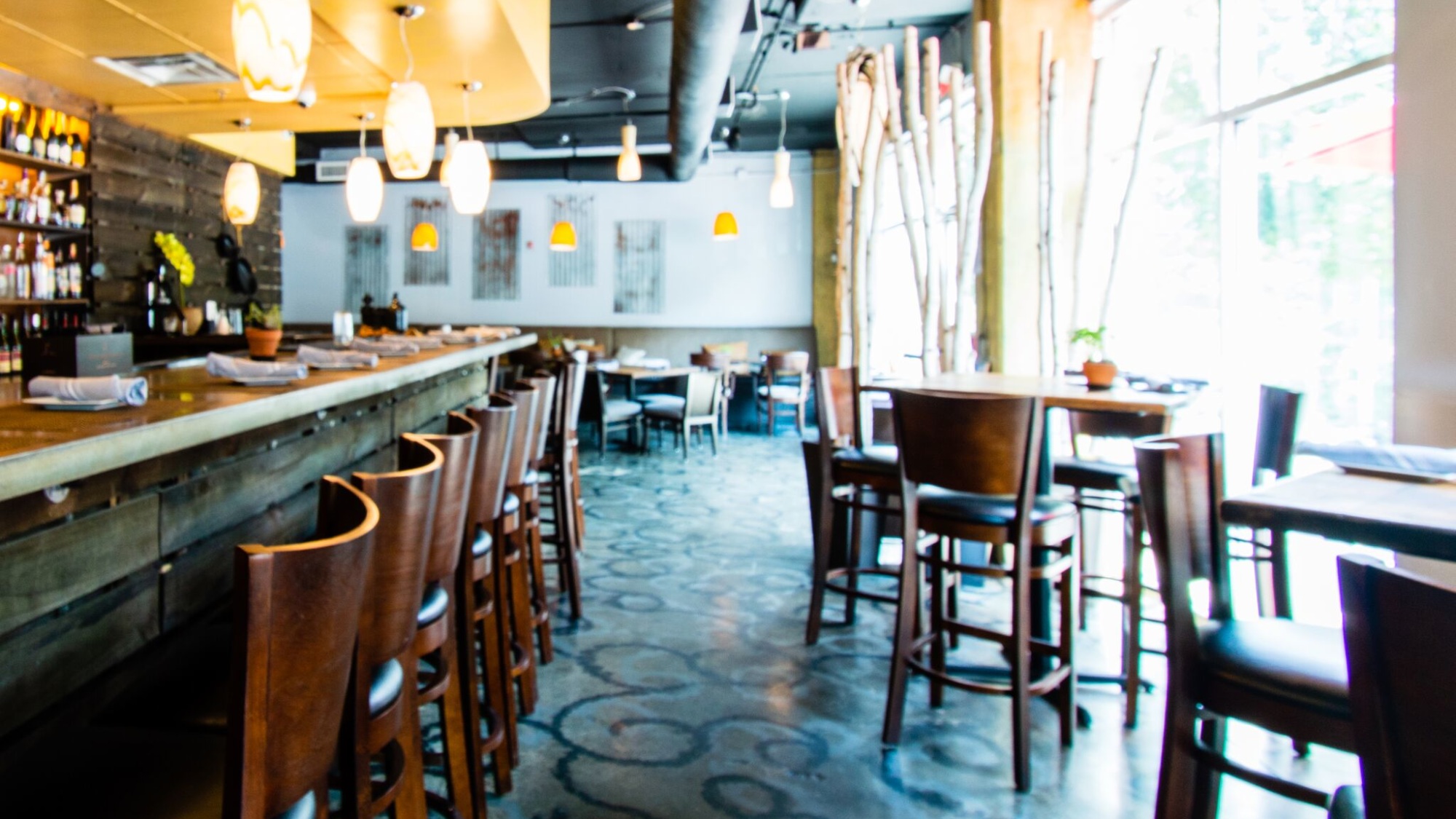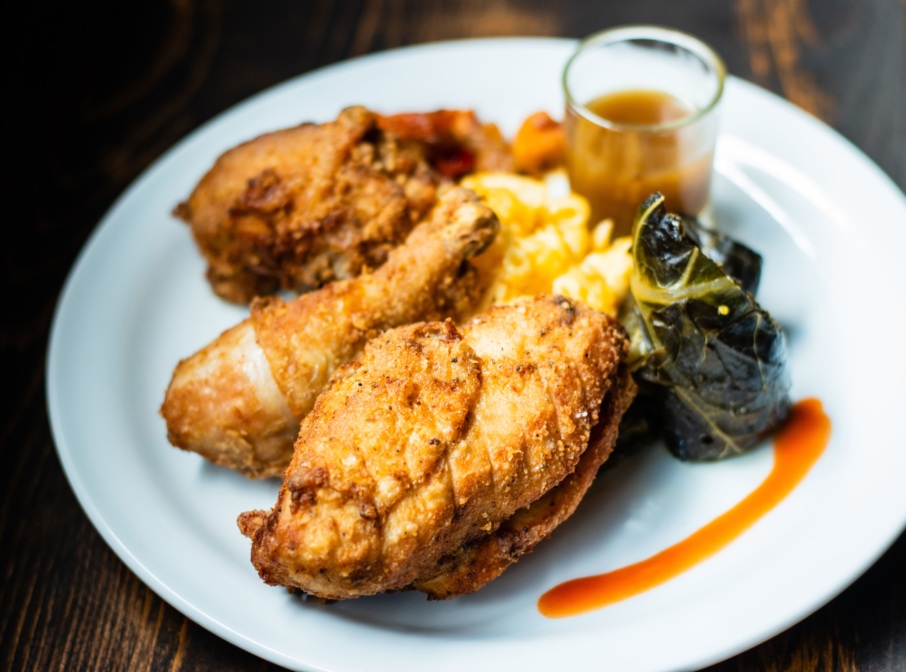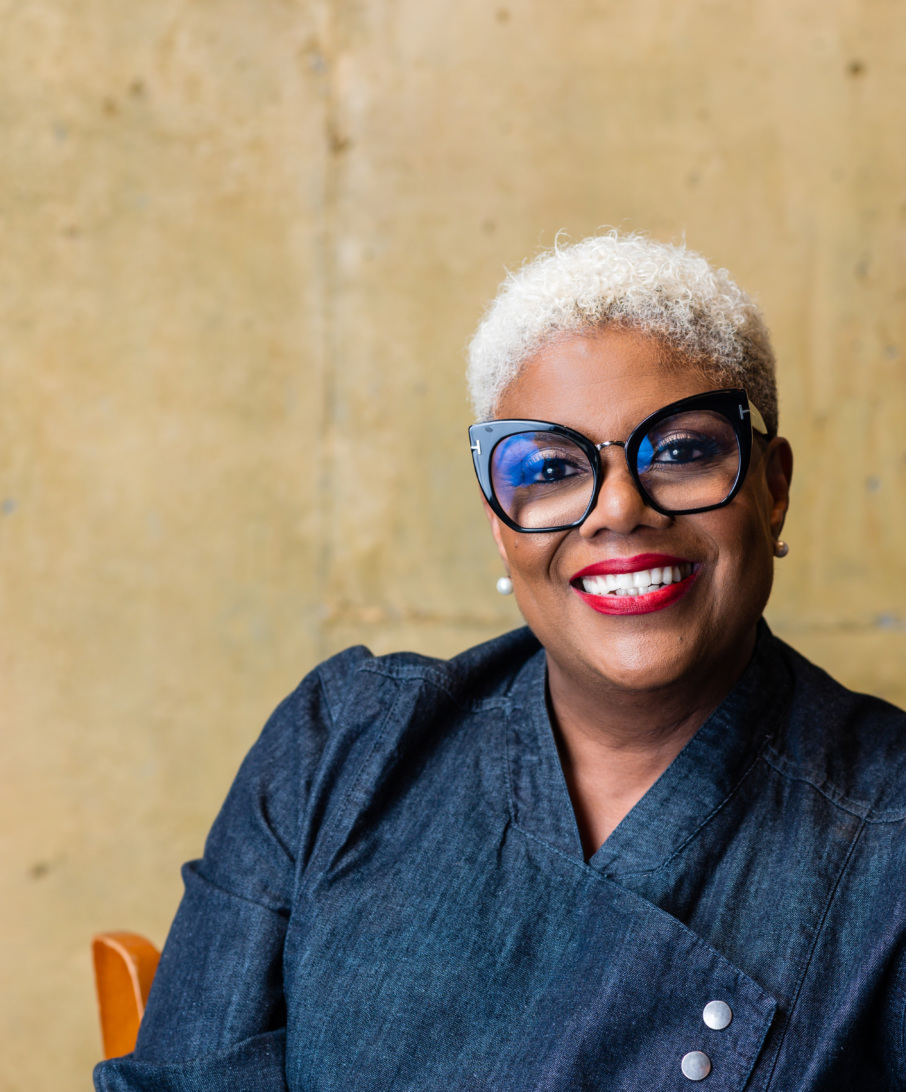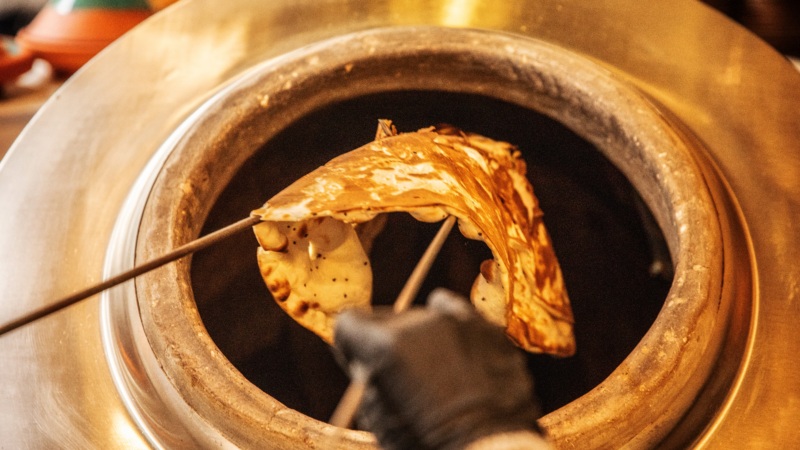Twisted Soul Cookhouse and Pours
West Midtown
Close

Usually a bustling dining room, Twisted Soul Cookhouse & Pours on Atlanta’s Westside is now quiet for most of the week.
“The struggle is daily,” said owner and chef Deborah VanTrece. “There are more questions than there are answers right now.”
Since Gov. Brian Kemp enacted a mandatory shutdown of dining rooms in response to the COVID-19 pandemic in mid-March, VanTrece has been grappling with the changes required to stay afloat along with the stresses and anxieties those changes bring. She opted to open for a few days a week, when she offers Fish Fry Fridays and a chicken concept pop-up on Saturdays.
Even once Kemp reversed the order and allowed restaurants to reopen dining rooms on April 27, VanTrece’s dining room remained empty and closed to diners, as she said the safety of both her staff and customers is tantamount.
When VanTrece, who originally hails from Kansas City, opened her restaurant in 2016, it was the latest in the city’s legacy of Black-owned restaurants. “Coming here was very refreshing,” she said. “It took a while for me to really get used to the fact that the African American [restaurant] community here is really strong and profitable.”
Now, times are dire, not only for Twisted Soul, but for the many other Black-owned restaurants throughout Atlanta, a city whose culinary fabric has been shaped and molded from the very beginning by Black cooks, chefs and other food entrepreneurs.
For more than a century, these restaurants have been places to unite, places to shelter, places to gather when there were no other places to go. Losing that part of Atlanta means losing something that cannot be replaced.
“One of the real fears of COVID-19 is restaurants failing,” said Akila Sankar McConnell, a culinary historian and author of “A Culinary History of Atlanta.”
“There are some restaurants that are really important in our social consciousness and they shape the way in which we, as a city, continue to operate. When those restaurants fail, their stories are just lost.”
***

When talking about long legacies of Black-owned restaurants in Atlanta that have been feeding their communities for decades, you’d be bereft to not mention either Paschal’s and Busy Bee Cafe.
At one point, these two eateries were right next door to one another. Both played an integral role in the Civil Rights Movement, literally feeding leaders as they met and strategized until the wee hours of the morning.
Food was as elemental to everything else, nourishment becoming an unspoken secondary, supporting pillar to the fight for equality during the era of Jim Crow and thereafter.
In 1947, brothers James and Robert Paschal opened their teeny, tiny shop selling only sandwiches and sodas. Through the years, it transformed into a fully fledged restaurant serving meals from breakfast to dinner, and became a pillar of its community. An EBONY Magazine article from November 1979 mused that “it is commonly held that the milestone Selma March had its beginnings at Paschal’s and its end on the bloody pavement of the Edmund Petty Bridge.”
Busy Bee Cafe opened its doors under the tutelage of Lucy Jackson, also in 1947. Quickly earning the reputation of the best fried chicken in the city, Busy Bee has maintained that bestowed honor through the decades. Jackson sold the business in the late 1970s and in 1981, the Gates family purchased it. Five years later, Tracy Gates took over the business from her father, and she still owns it to this day.
But as vital as Paschal’s and Busy Bee continue to be in Atlanta, the history of Black entrepreneurship and ingenuity in Atlanta extends even further back.
“There was a century of really innovative and creative food entrepreneurs who were Black food entrepreneurs,” said Akila Sankar McConnell, the culinary historian. “They created this ability for people like James and Robert Paschal or Lucy Jackson to open up restaurants like Paschal’s and Busy Bee.”
For a significant portion of its history, Atlanta was considered a railroad town. In the 1800s, the single biggest thing freight trains were shipping was food, according to McConnell.
Moving food around was much faster via rail versus, say, ships that could take months. Since Atlanta was a terminal railroad stop, from the early 1800s until about 1910 (when automobiles came into fashion), the single biggest industry in Atlanta was the food industry.
And Black people were at the forefront of it.
In her book, McConnell writes about key figures who started food businesses — an esteemed baker named Myra Miller, Robert Webster, James Edward Tate — but are rarely given their due for their contributions.
Tate, for instance, owned a grocery store during a time when Black people in Atlanta often dealt with discriminatory price gouging. Tate, dubbed the father of Black business in Atlanta, bought land outside of the city limits, where he grew produce for his store and hired his own crew to farm it.
“Restaurants are one of the most important businesses for the disenfranchised,” McConnell said. “If you are disenfranchised and you were able to build wealth, you could share that. And that’s what I think all of these early food entrepreneurs did.”
Their efforts, their activism in the aim of Black liberation, were a bridge for what was to come, the business owners to come.

Tracy Gates, owner of Busy Bee Cafe, admits that adjusting to the new COVID-19 normal for her business was difficult at first. Now that her and her staff have found a rhythm, they’re finding their way. Sunday sales typically carry the bottom line. In previous weeks, sales were down 53%. Now the gap has narrowed to only a 27% decrease.
Changes like opting for more baked proteins versus fried — the crispiness turns soggy during transit — and transforming the dining room to support assembly lines has made a difference.
“After the initial fear and panic eased, we started seeing customers come back and ordering food again,” Gates said.
Meanwhile, Paschal’s closed last month after doing takeout and delivery for a few weeks. They recently posted on Instagram about reopening soon. Time will tell how their momentary pause and shift in operations will affect them long term, as it will for many others.
The harsh realities that will emerge in time are definitely one of VanTrece’s worries. McConnell agrees with those very real fears of what could be lost — especially in terms of history and legacies.
“The safe places are us, for us, and represent us. How many of those will we lose unnecessarily? Most of the Black-owned businesses in general, it wasn’t easy to get there in the first place,” VanTrece said. “There may have been struggles prior to all of this. And this may be the straw that broke the camel’s back for a lot of places. We’re going to lose a lot.”
Whether in Midtown, Downtown, College Park or the Westside; and whether it’s Twisted Soul Cookhouse & Pours, Busy Bee Cafe, Paschal’s, Slutty Vegan, Le Petit Marche, Milk & Honey, Mango, or countless others, the hope is that what remains after this pandemic passes is not the wreckage of loss.
The hope is that more can survive — to contribute to a story, and food history, that is ever-evolving in Atlanta.
Nneka M. Okona is a journalist living in Atlanta.

Stephen Satterfield's Corner Table